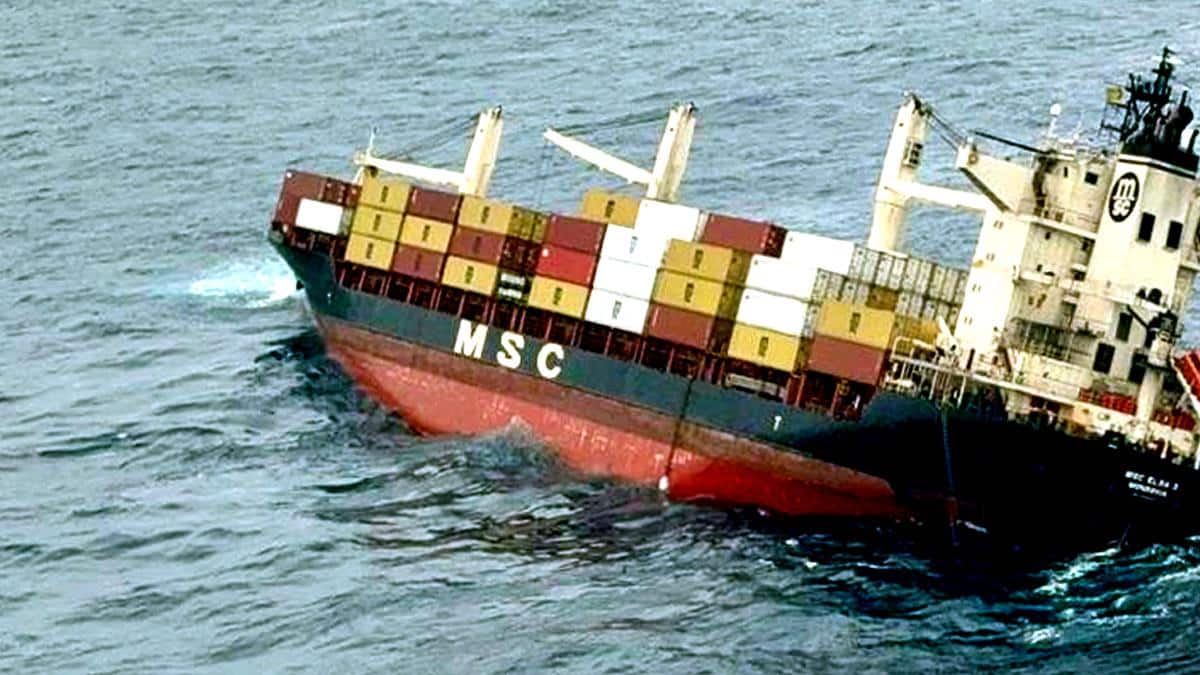Concerns Mount Over Vizhinjam Port’s Environmental Impact

The recent sinking of the Liberia-flagged container vessel MSC ELSA 3 off the Kerala coast has intensified scrutiny of the Vizhinjam international seaport. While political leaders tout the port as a significant step toward economic prosperity, environmentalists and local fishing communities warn of its detrimental effects on coastal ecosystems and livelihoods. A report by the Janakeeya Padana Samithi highlights the potential risks posed by the port, emphasizing the need for a balanced approach to development that considers environmental sustainability.
Environmental Risks and Community Concerns
The Vizhinjam international seaport, inaugurated on May 2, 2025, has sparked a heated debate among various stakeholders. Political parties in Kerala view the port as a transformative project for economic growth. However, environmental activists and marine experts argue that its location is poorly chosen, posing significant risks to the local ecosystem and the livelihoods of fishing communities. Dr. K V Thomas, a marine scientist and chairman of the Janakeeya Padana Samithi, has voiced strong concerns regarding the port’s impact on the coastal environment.
Dr. Thomas points out that the coastal zone around Vizhinjam has historically been free from shipwrecks and pollution. However, recent incidents, including a shipwreck 165 kilometers north of the port and a cargo ship fire near Kozhikode, raise alarms about the safety of maritime operations in the area. He warns that the increasing frequency of large container ships could lead to more accidents, jeopardizing both marine biodiversity and the fishing community’s way of life.
The report titled Our Beaches, Our Sea: Heritage of Fishing Communities, Usufruct of All Citizens outlines the potential consequences of the port on local beaches, biodiversity, and the livelihoods of fishermen. Dr. Thomas emphasizes that the coastal area is already experiencing erosion, which could be exacerbated by the port’s operations. He criticizes the lack of thorough environmental assessments conducted prior to the port’s construction, suggesting that critical information was overlooked by authorities.
Moreover, the report highlights that the region is home to a significant population of traditional fishers who rely on the sea for their livelihood. The establishment of a major port in this area raises concerns about the disruption of fishing zones and the potential for increased competition for marine resources. Dr. Thomas argues that proper mapping of fishing areas and stakeholder interests should have been conducted to prevent conflicts and protect the livelihoods of local communities.
As the debate continues, the fishing community remains apprehensive about the long-term implications of the port on their livelihoods and the overall health of the coastal ecosystem. The recent shipwreck serves as a stark reminder of the potential dangers associated with increased maritime traffic in a fragile coastal environment. Without careful consideration of environmental impacts, the vision of economic prosperity through the Vizhinjam port may come at a significant cost to both the community and the environment.
